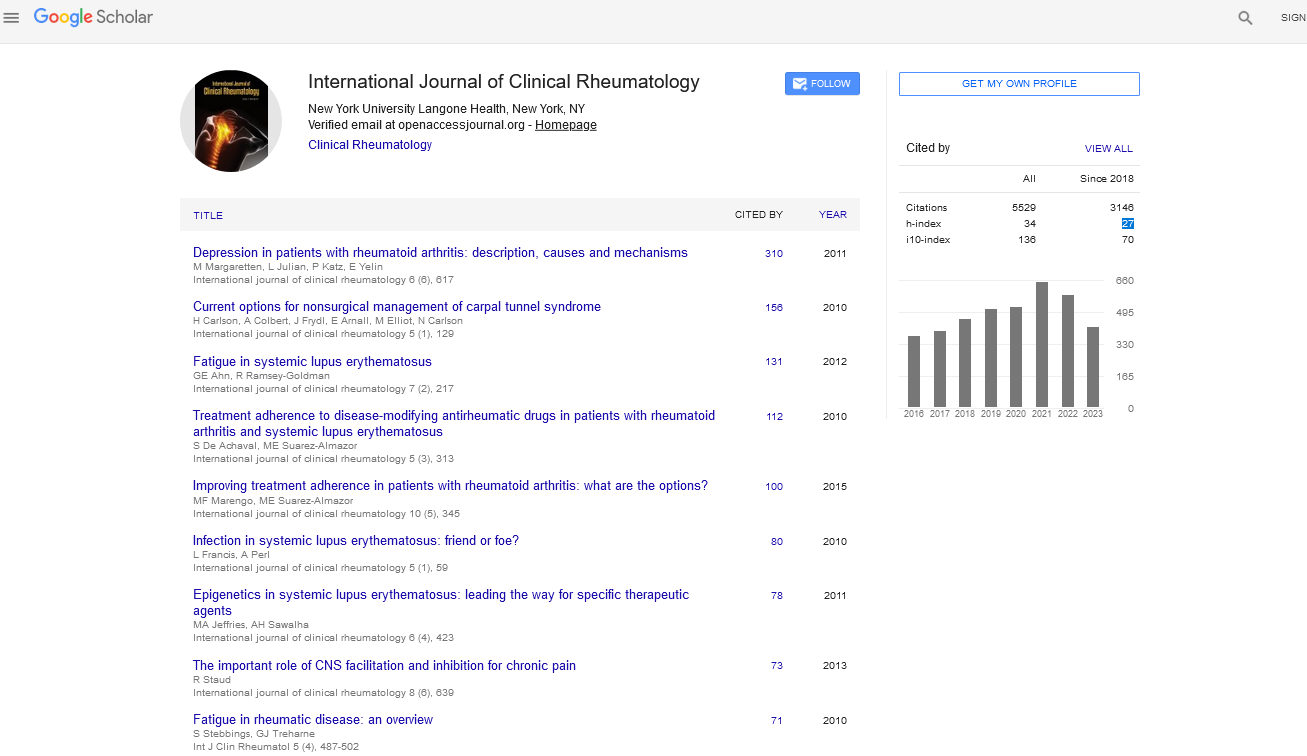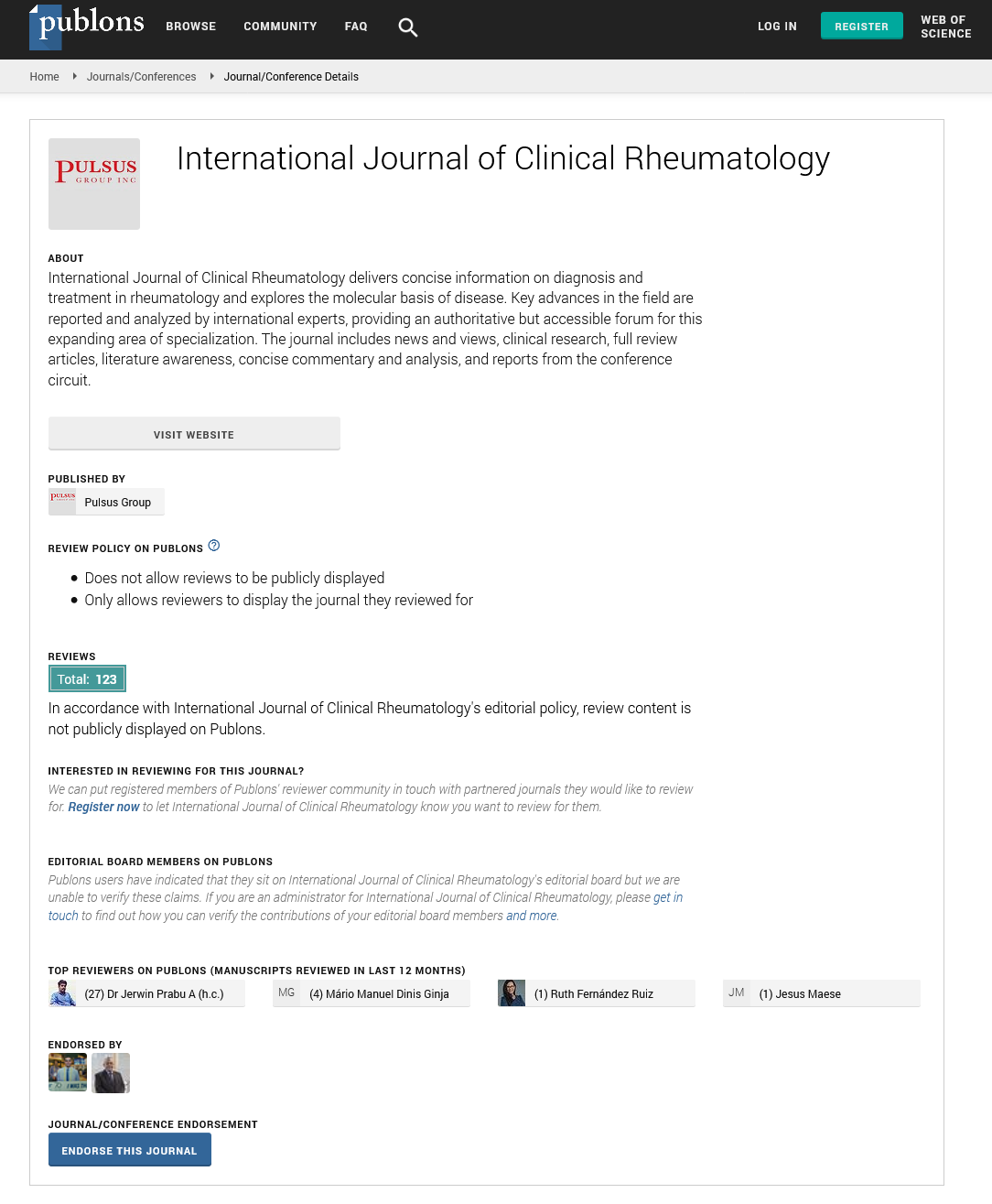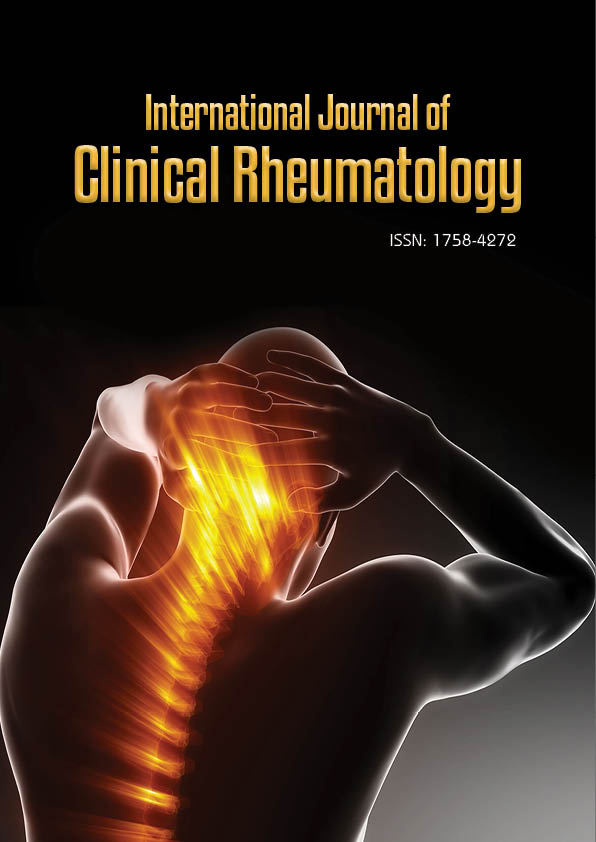Opinion Article - International Journal of Clinical Rheumatology (2022) Volume 17, Issue 5
Herbal Cannabis Not Recommended for Rheumatology Patients
Chung-Yi Chen*
School of Medical and Health Sciences, Fooyin University, Taiwan
- *Corresponding Author:
- Chung-Yi Chen
School of Medical and Health Sciences, Fooyin University, Taiwan
E-mail: xx377@fy.edu.tw
Abstract
Introduction
Patients with rheumatic conditions are in need of symptom relief and some are turning to herbal cannabis as a treatment option. However, the effectiveness and safety of medical marijuana to treat symptoms of rheumatic conditions such as rheumatoid arthritis, lupus, or fibromyalgia is not supported by medical evidence. It explores the risks associated with using herbal cannabis for medicinal purposes and advises healthcare providers to discourage rheumatology patients from using this drug as therapy [1].
Description
The reason for the medical interest in herbal cannabis is that the human body has an extensive cannabinoid system comprising molecules and receptors that have effects on many functions including pain modulation. Medical cannabis is commonly used to selftreat severe pain associated with arthritis and musculoskeletal pain. In fact, previous research reports that 80% of marijuana users in a U.S. pain clinic are treating myofascial pain with the drug. In population studies in the U.K. and Australia, up to 33% of individuals report using marijuana to treat arthritis pain. As of June 2013, estimates from the office of Information Commissioner of Canada list "severe arthritis" as the reason the 65% of Canadians who are allowed to possess marijuana for medicinal purposes [2].
With the public outcry for herbal cannabis therapy, governments around the world are considering its legalization for medicinal use. Physicians caring for patients who are self-medicating with marijuana need to understand the health implications of using this drug [3]. Our study aims to provide health care professionals with that medical evidence related to medical marijuana use in patients with rheumatic conditions.
In the U.S. twenty states, including the District of Columbia (DC), have legalized cannabis for medical purposes. The present study examines the dosing, administration, efficacy and risks of herbal cannabis in pain management for patients with rheumatic conditions. The health issues with recreational marijuana use in this patient population are not covered [4].
Concentrations of tetrahydrocannabinol (THC) - the substance found in Cannabis sativa that provides pain relief and alters brain function (psychoactive effect) - vary in the plant material by up to 33% and absorption rates are between 2% and 56%, making the dosing of herbal cannabis unreliable. While cannabis may be ingested, most users prefer to inhale the compound for a quicker response. However, smoking a "joint" is not recommended by the medical community due to adverse effects on the respiratory system from hydrocarbons, tar and carbon monoxide.
Furthermore, there is no formal short-term or long-term study of the effectiveness of herbal cannabis in patients with rheumatic diseases. Studies that show good efficacy of cannabinoids for cancer and neuropathic pain may not be extended to rheumatic diseases because of the differing mechanism in the types of pain [5].
Conclusion
The study authors highlight that use of medical marijuana comes with inherent risks such as compromised cognitive and psychomotor function. Long-term use of cannabis may lead to mental illness, dependence, addiction and memory issues. In fact, a prior U.S. study of 8,000 adults who used cannabis in the previous year found that the odds of depression were 1.4 times higher in cannabis users compared to non-users.
At this time, we cannot recommend herbal cannabis for arthritis pain management given the lack of efficacy data, potential harm from the drug, and availability of other therapies for managing pain. Physicians should discourage rheumatology patients from using medical marijuana as a therapy.
References
- Fitzcharles MA, Niaki OZ, Hauser W et al. Position statement: a pragmatic approach for medical cannabis and patients with rheumatic diseases. J Rheumatol. 46, 532-538 (2019).
- Ablin JN, Elkayam O, Fitzcharles MA. Attitudes of Israeli rheumatologists to the use of medical cannabis as therapy for rheumatic disorders. Rambam Maimonides Med J. 7 (2016).
- Fitzcharles MA, Häuser W. Cannabinoids in the management of musculoskeletal or rheumatic diseases. Curr Rheumatol Rep. 18, 1-9 (2016).
- Häuser W, Petzke F, Fitzcharles MA. Efficacy, tolerability and safety of cannabis‐based medicines for chronic pain management–An overview of systematic reviews. Eur J Pain. 22, 455-470 (2018).
- Petzke F, Tölle T, Fitzcharles MA et al. Cannabis-Based Medicines and Medical Cannabis for Chronic Neuropathic Pain. CNS drugs. 1-14 (2021).
Indexed at, Google Scholar, Crossref
Indexed at, Google Scholar, Crossref
Indexed at, Google Scholar, Crossref
Indexed at, Google Scholar, Crossref


